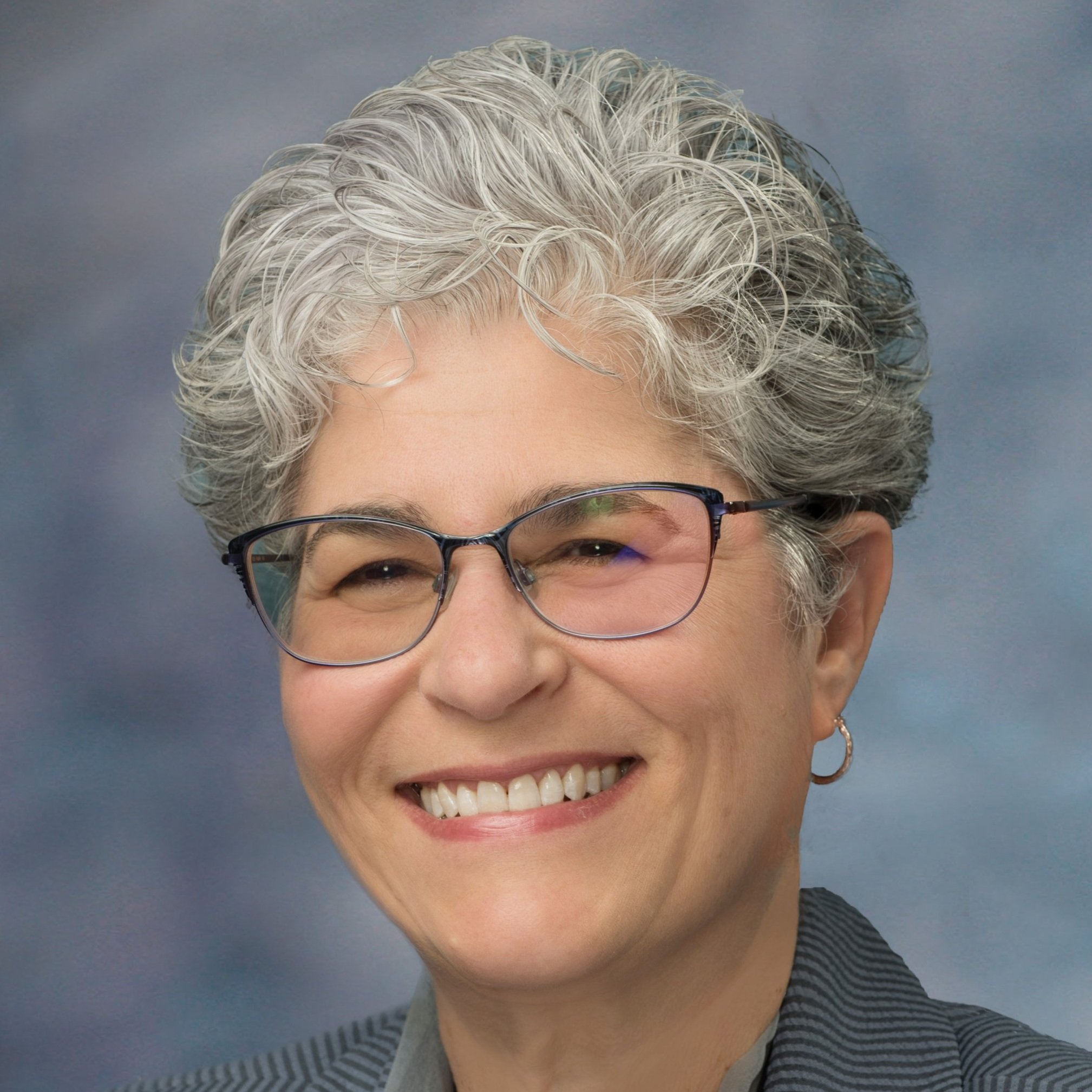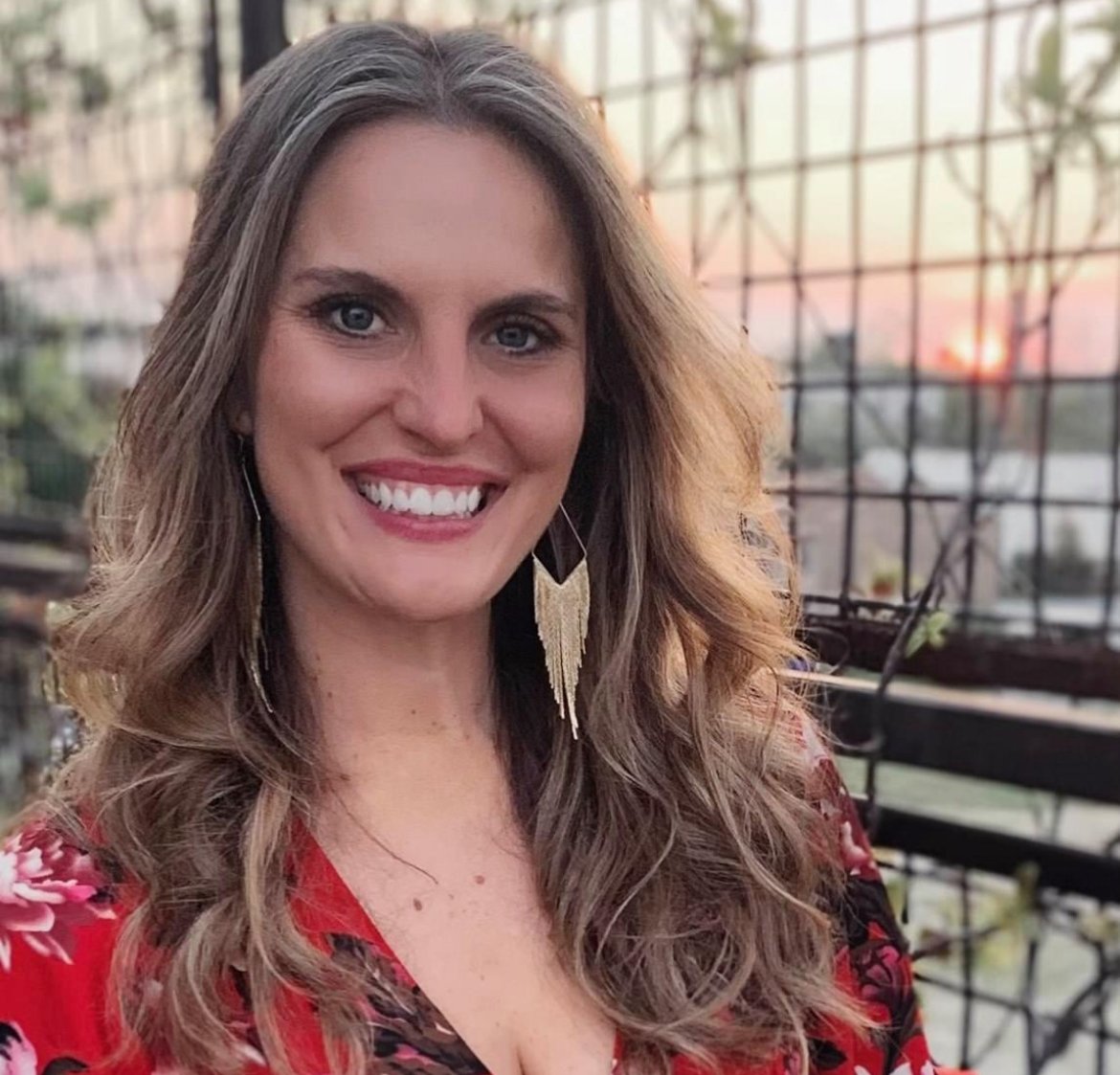Women in AI+ED - Member Spotlight: Higher Ed
Highlighting the grassroots work happening every day across the globe to advance responsible AI adoption and training in education.
This week we’re celebrating the remarkable female educators and leaders in our community who are doing the grassroots work happening every day across the globe to advance responsible AI adoption and training in education.
From K-12 teachers thoughtfully introducing AI literacy in their classrooms to nonprofit leaders building sustainable programs for their communities, these women are doing the essential frontline work. Their efforts showcase the quiet yet powerful impact of educators who roll up their sleeves every day, leading responsible AI adoption from the ground up, one classroom, one project, and one student at a time.
Learn more or join the Women in AI + ED community here.
Higher Ed
Stanford University | USA
Rose’s work introduces algorithms, benchmarks and large-scale interventions for scaling expertise, i.e., building language models that capture expert reasoning. Her research is deployed in industry and directly improves the education of under-served students through partnerships she has cultivated during through her Ph.D. at Stanford. Rose’s most recent work Tutor CoPilot is a large-scale intervention that raises the quality of tutoring for 1,800 K12 students and 900 tutors with a novel Human-AI approach.
Lecturer, York College, CUNY | USA
Casandra organizes faculty workshops and discussions to show faculty that much of AI adoption is about educational philosophy and pedagogy rather than advanced technical skills. She wants to empower them to shape the future of education and build their own tools. Casandra also organizes a monthly gathering for educators creating custom tutors/bots, and she teaches education students how to develop their tutors/bots for K-12 students!
Lecturer and Course Director, Master of Education (Teacher Librarianship) | Australia
Dr. Oddone supports teacher librarians and school library professionals to develop their knowledge and skills of how GenAI impacts the evolving information ecosystem, and the implications for their role as they work with teachers and students.. She have published several peer reviewed and professional articles and presented keynotes and workshops to raise awareness of the foundational literacies needed for ethical and effective implementation and use of GenAI platforms.
Director, Center for Healthcare-Focused Teaching and Learning at Baptist Health Sciences University | USA
Dr. Bissa develops and facilitates professional learning for higher education faculty and staff focused on leveraging AI and human skills to transform workflows and educational practices that lead to impactful student learning outcomes. She works to research, implement, and evaluate the use of AI in various aspects of instruction and student life to prepare learners for healthcare-related professions. She and other faculty are building a network of continuous learning and support so that instructors strategically embed AI throughout the curriculum on a course-by-course basis and learn to use AI to personalize student learning.
Associate Teaching Professor, Penn State University | USA
Tiffany serves as the co-chair for Penn State's Joint Standing Committee for artificial intelligence, as well as the chair for the Behrend Campus AI Taskforce. She is a Teaching and Learning with Technology fellow, and her fellow’s project centers on embedding AI literacy objectives into the basic communication course to ensure all students across the university build some foundational AI literacy. She runs several communities - including Penn State's AI Community of Practice - where she works with leaders to bring AI literacy to professionals through workshops, trainings, and events.
Vice Chancellor, Institutional Innovation and Effectiveness /San Diego Community College District | USA
Michelle’s approach to building AI literacy and supporting responsible AI adoption at SDCCD is grounded in a strategic, data-informed framework designed to ensure sustainable, responsible use of AI districtwide. Their work is characterized by planning and developing AI infrastructure, responsible AI adoption, and collaborative partnerships for enhanced AI support.
This entrepreneurial, infrastructure-driven approach enables SDCCD to create a framework that can responsibly adopt AI, emphasizing ethics, accessibility, and educational quality.
Temple University-Center for American Language and Culture | USA
Meghan is developing an AI Literacy course for Temple University’s Conditional Pathways Program that empowers international students to harness AI as a valuable tool for academic and professional success, while honoring their unique voices and perspectives. Through her feedback as a Kyronn Learning AI Innovation cohort member, she is also helping to make the platform more inclusive and accessible by prioritizing multicultural sensitivity.
Quality Online Inclusive Learning Design Coordinator @ California State University, Fullerton | USA
Dr. Wynants leads development of the AI Ethical Principles Framework to guide responsible AI use across the CSUF. She collaborates with the Faculty Development Center to create comprehensive AI resources. She has proposed a new General Education course examining the intersection of AI, youth development, and workforce skills to enhance AI literacy among students. Through these initiatives, Dr. Wynants is actively working to build AI literacy and promote responsible AI adoption across CSUF's campus.
Instructional Technology Coordinator, Auburn University | USA
Dr. Chelsy Hooper is an Instructional Technology Coordinator at Auburn University Libraries. Chelsy has been a driving force in building AI literacy, supporting responsible AI adoption, and training students, faculty, and staff in AI tools. Under her guidance, Adobe Creative Space conducts series of workshops open to all students, faculty, and staff, team-teaches with faculty across campus to integrate creative AI tools, and hosts an Adobe help desk where users can get one-on-one assistance with creative AI tools and learn more about how to integrate them responsibly in academic projects and research.
Executive Director, AI Acceleration - Enterprise Technology @ Arizona State University | USA
Over the past year, Dr. Reilly has driven AI literacy initiatives across the university and dedicated hundreds of hours to sharing AI knowledge and insights through small group sessions, one-on-one consultations, workshops, and conference presentations. She collaborated on the development of faculty and staff training, including an innovative 6-month intensive curriculum that bridges generative AI expertise with institution-specific knowledge. This program strategically embeds AI specialists within individual units, ensuring that each department has an expert who understands both their unique operational context and essential institutional frameworks, including approved tools, data governance, and security protocols.
Professor (English) @ Dallas College | USA
Tonya currently teaches English composition at Dallas College. In her courses, she teaches students to use generative AI responsibly in essays and technical writing. Students are familiar with recognizing biases in these tools and properly citing their usage according to the MLA style guide. Tonya also serves as a member of the Faculty Inquiry Group on AI at the college.
Director of Distance Learning & Instructional Technology, Mt. San Antonio College | USA
Katie is am leading a team of Instructional Designers who have developed workshops for GenAI adoption focusing on assessments, equity and tool use. They are also working collaboratively to develop GenAI assistants to help in the instructional design process for a pilot Competency-Based Education program.
University of Oxford | United Kingdom
Recently, Dr. Ratner has been awarded funding to expand AI in Education at Oxford University (AIEOU) to establish an interdisciplinary research hub that will facilitate conversations with stakeholders across industry, schools, charitable organizations, policymakers and governments to shape the future design, regulation and implementation of AIED.
Instructional Technologist at Denison University | USA
At Denison University Lori and her team created an AI Staff Collaborative with representatives from different campus divisions. They meet monthly to share innovative ways their teams are engaging with AI and plan campus-wide initiatives. Last spring the collaborative held an AI Showcase for faculty, staff, and students to learn best practices and strategies. On Halloween we discussed our favorite AI tricks and treats and then created a “goody bag” to share with our teams.
Assistant Professor, University of Engineering & Technology | Pakistan
Sadia served as UNESCO’s Lead Rapporteur for AI in Education on the AI Experts' Panel and was acknowledged as one of 30 AI Ambassadors for drafting the "AI Educational and Ethical Report." As a passionate advocate of AI literacy and responsible adoption, she is engaged with capacity-building initiatives and training programs for the educational workforce in Pakistan. She has empowered 5K+ higher education faculty and students through AI bootcamps, workshops and trainings and is currently designing a micro-certification course in collaboration with UNESCO on Building Student Engagement and Communication with AI Tools for Higher Education Personnel.
Regional Director, Institute for Study Abroad | United Kingdom
Ewelina promotes responsible AI use by sharing insights on AI in education and workplace. Her contributions aim to foster a balanced perspective on AI risks and opportunities and support practices that ensure AI tools are used thoughtfully and ethically.
PhD student & Research Associate, Center for Lifelong Learning (Johannes Gutenberg University Mainz) | Germany
Luisa develops and leads training modules that help teachers understand AI's role in language learning, focusing on practical skills and ethical considerations. These programs highlight the importance of data literacy and equip educators with the tools to use AI confidently and responsibly in their classrooms. She is also conducting a survey to determine how professional development programs should be structured to enable language educators to apply AI meaningfully and effectively in their teaching Additionally, I am investigating the specific challenges teachers face in integrating AI into their instruction.
Technical Director | USA
Renah has spent the year with 3 other women in Higher Ed developing a place for other educators to learn about how to use AI. They curate and learn from apps and write short courses, offer learning pathways, certifications, and workshops. The educators they work with appreciate how we are helping them to onramp into the AI world and provide this resource by educators for educators.
Assistant Vice President for Digital Learning at California State University Channel Islands | USA
Lorna Gonzalez is leading her university and her professional networks to approach AI diffusion through critical inquiry, play, and civil discourse. She has coordinated events that bring together multiple viewpoints to discuss, demonstrate, research, and even future-cast around AI diffusion. Lorna has also published articles on AI and inclusion through EDUCAUSE Review, and she has been invited as a guest expert on AI diffusion by California State University and OneHE.
Professor and Academic SME/Prompt Engineer | USA
As an innovative educator, Doreen has pioneered a flipped AI classroom model where students engage with foundational concepts through AI tutoring outside of class, enabling deeper in-class applications through real-world projects. This approach has demonstrated measurable success through improved student engagement and test scores. At LearnWith.AI, she leads the academic development of AI-powered educational tools, including TeachTap, TeachTales, and Magic Academy platforms.
Professor of Practice, Center for Learning and Teaching @ The American University in Cairo | Egypt
A recognized thought leader in higher education technology, Maha was named one of the 30 Higher Ed IT Influencers to Follow in 2023 by EdTech Magazine. As an active practitioner and researcher, she leads workshops both at her institution and internationally, while providing personalized faculty support through one-on-one consultations and co-design sessions. Her innovative work includes developing and publishing an original model through the London School of Economics Higher Education blog, and through her own blog, transparently shares her evolving insights and research findings.





















